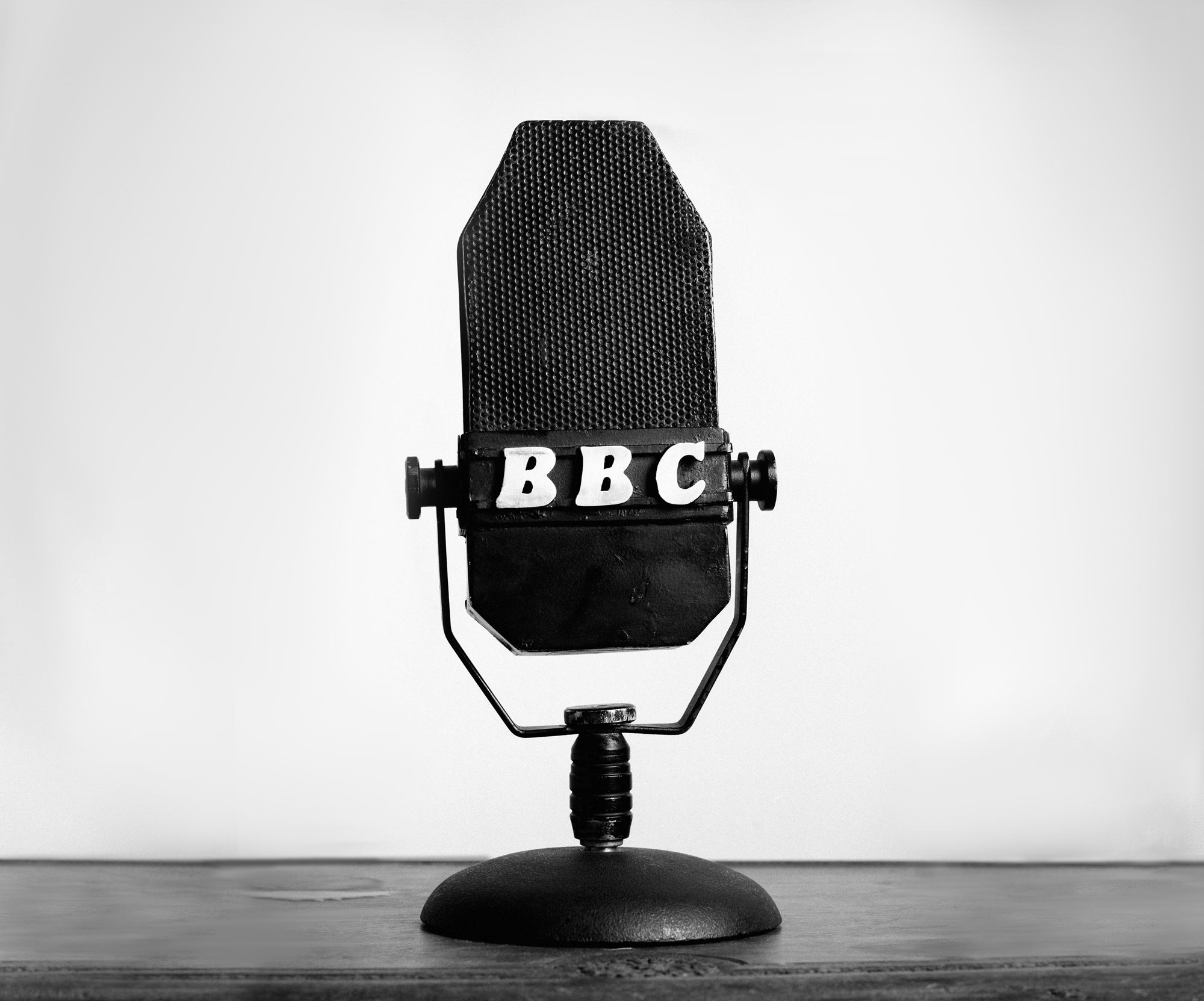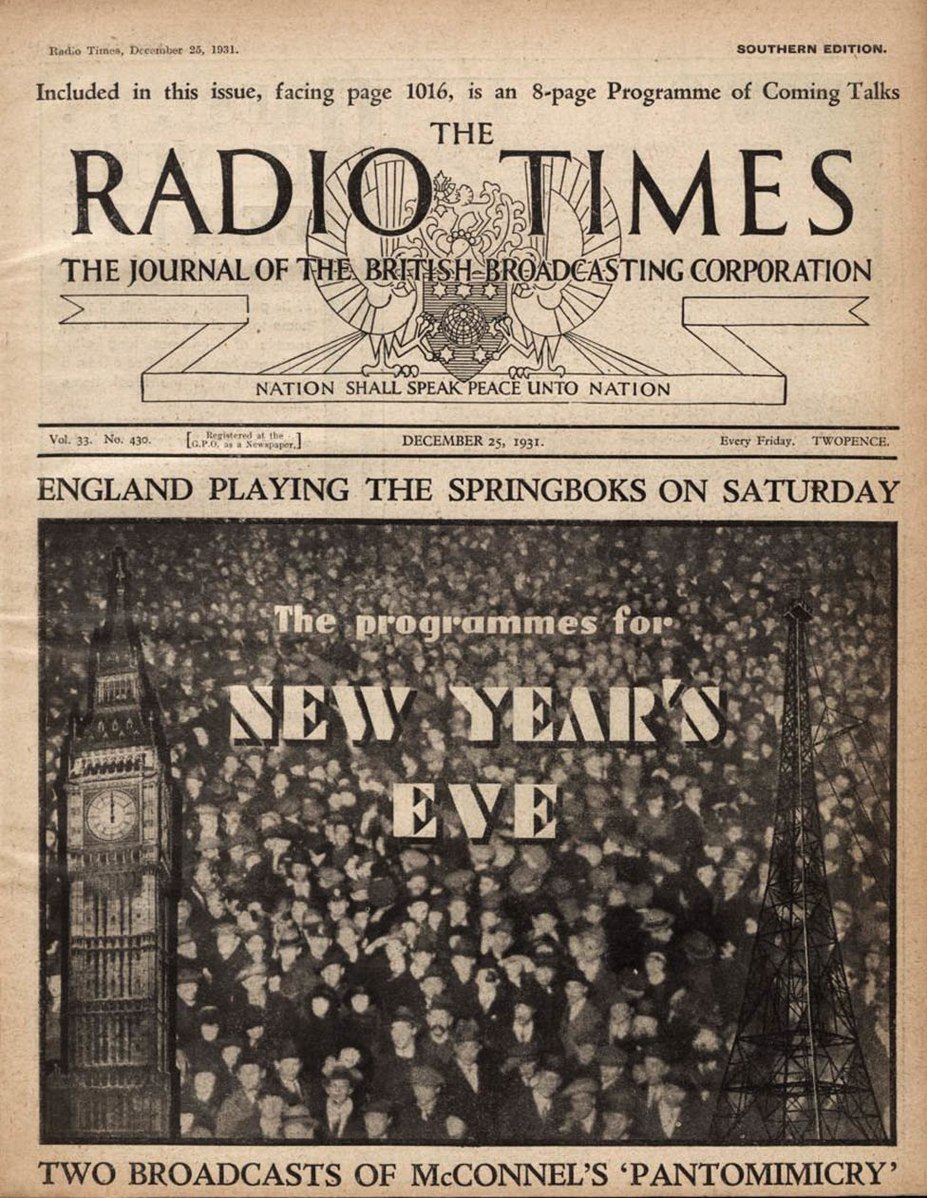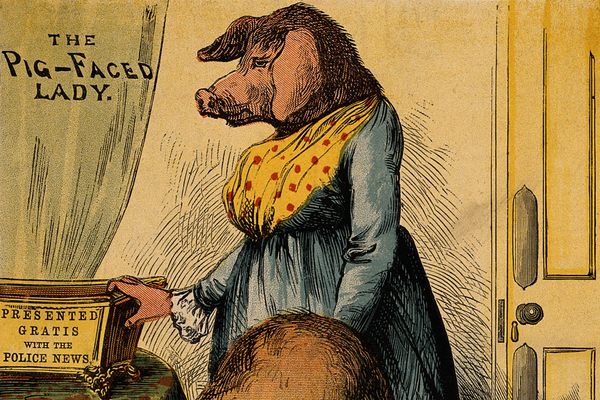The Day Without News
On April 18, 1930, the BBC made a surprising announcement.

Imagine you had a very special time machine: one that could take you back to any April 18 in all of history. When and where would you travel to? You could go to Boston in 1775, and watch Paul Revere take his famous midnight ride. You could head to Zimbabwe in 1980, and experience the birth of a country.
These are good and fine choices. Some of us, though, are tired. We might choose instead to jaunt back 88 years, to a British living room—any British living room. On Friday, April 18, 1930, at 8:45 p.m., people all over Britain settled in to catch the BBC News evening bulletin. But when they flipped on their radios, they heard a soothing announcement instead: “Good evening. Today is Good Friday. There is no news.” For the rest of the 15-minute time slot, the station played only piano music.
From our current point in time—April 18, 2018—it is hard to imagine a day with no news. Writing this in New York City, at barely noon, we have already learned today about peace talks between North and South Korea, a blackout in Puerto Rico, and the death of the last royal Corgi. The BBC, which had a head start, has also reported on a nurse’s strike unfolding in Zimbabwe, a pet raccoon that overdosed on marijuana, and the escape of a Bitcoin heister from custody in Iceland. We hear the news on the radio and from wide-eyed friends and colleagues, and see it on Twitter and Facebook and via alerts beamed to our phones. Constant news consumption is such a part of contemporary life that when people actively eschew it, we put them in the papers.


In this context, “the Day with No News is a wonderful historical reminder,” writes Ethan Zuckerman, the director of the Center for Civic Media at MIT, in an email. “I think it’s a great way to think about what the BBC was supposed to be, and how that differs from what news as a category is today.”
In 1930, the BBC was only about a decade old, and had very specific goals. “The BBC’s approach was directly counter to what the U.S. was doing with radio, [which was] opening licensing and allowing competition between a wide variety of commercial approaches,” writes Zuckerman. Instead, they were the only game in town, chartered by the crown with a monopoly over the airwaves. This model came with a very specific mandate: “Rather than opening things up and appealing to everyone, the BBC aimed on raising the moral character of [Britain],” he writes. “It took on a mission that feels pretty elitist today.” (It was a spirit that suffused the endeavor: When the announcer decreed that there was no news, he almost certainly did so in a dinner jacket, even though no listeners could see him.)
In other words, the BBC decided what was worth reporting on, and according to them, it was better to stay silent than to fail to clear this bar. Radio announcers got their stories from Reuters, the Press Association, the Central News, and the Exchange Telegraph Company, “whose ‘tape’ machines disgorge their varied treasure into the News Room all day,” as the outlet’s 1931 Review of the Year explains. They’d then pick and choose from this disgorgement. As the 1930 Review put it, “A very definite standard of quality was aimed at, and … when there was not sufficient news judged worthy of being broadcast, no attempt was made to fill the gap.”

Even so, it’s not like there wasn’t anything major happening in and around Britain* that day. In fact, as Zuckerman points out, other historical news sources tell us that there were at least two important things going on. For one, the British government was apparently trying to respond to some allegations that had been printed in a newspaper the day before—and since the papers were taking the Good Friday holiday off, they might have tried to go on the radio. “It’s possible that Day of No News was a form of asserting press independence,” Zuckerman writes: “[They may have been saying] ‘We won’t be the mouthpiece for the government, and so no news for anyone.’”
For another, Surya Sen, a Bengali independence fighter, had successfully led a raid against a colonial police outpost in Chittangong. This time, technology foiled the story: Even if they had decided to report on this, “they couldn’t have gotten the news, as Sen’s forces cut the rail and telegraph lines,” Zuckerman points out.
There were surely plenty of other things afoot as well. But at that time, “the news wasn’t reporting on the vast majority of people’s experiences and events,” Zuckerman says. “On a day where nothing happened to world leaders and elites, the affairs of the hoi polloi weren’t newsworthy.” As he puts it, according to the BBC’s judgment, “Nothing happened on April 18, 1930 that a well-to-do, properly cultured British man needed to know about … And if there’s nothing worth learning about, some pleasant music will be at least as good for your moral character.”

Today, of course, things are different. Our sense of what is newsworthy is vastly different than the BBC’s in 1930, in a variety of ways: “If we had a day where Trump did nothing absurd … we’d happily fill the newshole with reports that don’t get enough attention,” such as the opioid epidemic and the ongoing water crisis in Flint, Zuckerman says. Or we’d fill it with a highway pickle mystery. Plus, while newsrooms are often out to change minds, they’re also generally trying to make money. “The notion of a day without news is inconceivable in a commercial context—it’s a bakery without bread,” Zuckerman says. And so there is never no news.
This year, in particular, it’s hard not to look back on the days of empty newscasts with nostalgia. Oh, to open Twitter and be greeted with a blank space and a softly tinkling piano! But as Zuckerman writes, imagining the gatekeeping that led to such silence can also serve as “a reminder of just how political [news-related] decision-making can be.” In that spirit, I would like to wish readers everywhere a happy anniversary of the Day Without News. I wonder what else will happen today?
*Update: We originally said “England.” Apologies to the people of Northern Ireland, Scotland, and Wales.

















Follow us on Twitter to get the latest on the world's hidden wonders.
Like us on Facebook to get the latest on the world's hidden wonders.
Follow us on Twitter Like us on Facebook